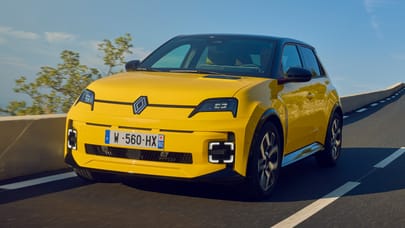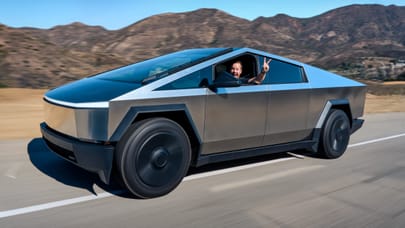
Opinion: can AI make you a better driver?
There's a quiet revolution happening, and it’s taking its first faltering steps in racing sims
Depending on who you listen to, artificial intelligence is either the solution to all our problems or the thing that will wipe humanity from this planet, which as own goals go, would be a bit of a howler. Imagine the alleged smartest species on Earth perfecting AI sentience, only to be gunned down by a Terminator that is simultaneously plagiarising a university essay and posting a picture of a ludicrously muscular Jesus Christ to Facebook. Truly a fitting end.
The truth is we don’t really know what AI is ultimately capable of, but that hasn’t stopped tech startups from trying to insert it into every facet of our lives. Usually, this intersects with cars in one of two ways. It’s either a grating AI dashboard assistant who will Google cinema times for you or self driving car tech of varying levels of ability, neither of which offer much to someone who actually enjoys driving.
There is a quiet revolution happening, though, and it’s taking its first faltering steps in racing sims. iRacing and Assetto Corsa Competizione are the proving grounds for the first AI driver coaches. Rather than seizing the wheel and doing the driving for you, the idea is to make you a better track driver. And while it’s currently a tool for the virtual world, there have already been experiments with in-car telemetry and real life track days.
The most high profile system is called trophi.ai, and because it’s the most popular among sim racers it also benefits from the largest amount of lap data to collate into useful advice. You drive and a synthesised voice gives you instructions as you approach a corner and offers feedback on your technique as you exit it. And it works pretty well... to a point.
I jumped into my favourite car and track combination on iRacing and was initially impressed. It immediately identified deficiencies in my brake pressure and application and, over the course of several laps, hammered my brake traces into something resembling the shape they are supposed to be. I particularly liked that when I chanced upon the correct line or braking pressure, my digital passenger said I was doing a good job. Hey, I’ll take all the compliments I can get.
Where it falls short of a human coach is it can’t see what you can see in any given moment. It’s all based on telemetry, so it can’t suggest visual reference points, which are crucial when learning a track. It also isn’t quick enough to talk you through a corner as it’s happening, so you have to absorb information ahead of time and attempt to apply it, which becomes trickier in more rapid fire complexes of turns.
As a starting point though, it’s fascinating, particularly with its potential for real world application. I’ve no doubt that as the system develops, it’ll become more responsive and more accurate. Plus, when ChatGPT eventually steals my job, as seems inevitable, I’ll have a lot more time on my hands for practising those braking points.
Top Gear
Newsletter
Thank you for subscribing to our newsletter. Look out for your regular round-up of news, reviews and offers in your inbox.
Get all the latest news, reviews and exclusives, direct to your inbox.
Trending this week
- Electric
Top Gear's top 20 electric cars










